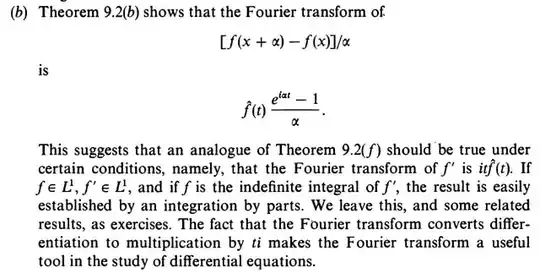This is 9.3 Remarks (b) of Rudin's real and complex analysis. The author says that we may use an integration by parts to derive the formula for the Fourier transform of a derivative. I have two questions regarding this.
First, what's the genuine meaning of the expression that $f$ is the indefinite integral of $f$? I am confused because now we are dealing with a Lebesgue integral, and my understanding is that the concept of indefinite integral is usually used in the context of Riemann integrals. I am now just guessing that the expression is used to just represent cases such as $f = x^2$ with $f'= 2x$, which I am not sure about.
Second, how can we use an integration by parts for this Lebesgue integral over $\mathbb{R}$? The technique of integration by parts is very often used easily for usual Riemann integrals over compact intervals. However, in this case, the domain is unbounded and the integral is of the Lebesgue type. How can I derive the formula using an integration by parts?
